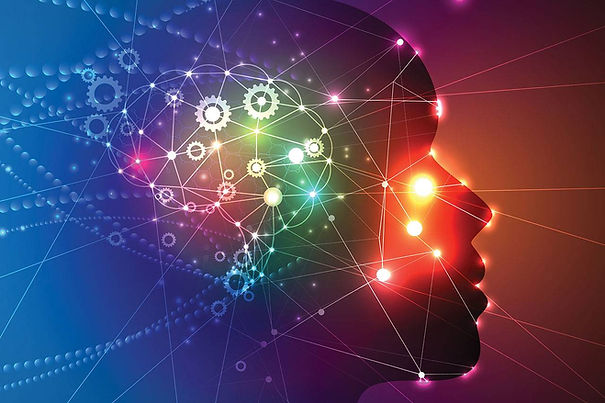
FutureMind Congress: Psychiatry, Psychosomatic Medicine & Mental Health Innovation 2026
Theme : “Integrating Mind, Brain & Technology for Next-Generation Mental Healthcare”
London, UK | September 23 – 24, 2026

Welcome Message

Porf. Zhenhuan LIU
Professor of Pediatric neurologist Nanhai Affiliated Hospital for Women and Children Guangzhou University Chinese Medicine China
Dear Attendees, Presenters, Organizing Committee and Distinguished Guests,
The invitation to write a welcome message and to present at this conference Psychiatry, Psychosomatic Medicine & Mental Health Innovation 2026 is an honor. I am very grateful to the Organizing Committee for emphasizing the important research into neurology and neurological disorders. The conference will enhance the global collective knowledge pertaining to neurological disorders and psychopathologies. The presentations and discussion will also provide crucially important hypotheses and suggestions for new research directions. My own special interest is in neuroimaging by evaluation nerverenovate and neuroplasticity of acupuncture in children with cerebral palsy. I wish you all the very best with your presentations. I only wish I could be there in person especially given its wonderful location!

About FutureMind 2026
FutureMind 2026 is a premier global forum where science, clinical care, and innovation converge to reshape mental health. In London over two days, leaders from around the world in psychiatry, psychosomatic research, neuroscience, and digital health will come together to share new knowledge, debate paradigms, and launch scalable solutions.
This congress is not just about academic exchange — it’s about turning ideas into impact. With keynotes, symposia, workshops, case sessions, and tech showcases, we aim to close the gap between research and real-world use. FutureMind is built to be actionable, inclusive, and future-oriented — a place where attendees don’t just listen but leave ready to transform care delivery

Why Attend?
Attending FutureMind 2026 offers benefits far beyond a typical conference. Here’s what sets it apart:
Hear the latest findings on neuromodulation, psychosomatic pathways, digital diagnostics, and integrated care
-
Advance your knowledge:
Experience demos of cutting-edge tools — from AI-based decision support to VR therapies and wearables
-
See innovation live:
Build relationships with global faculty, innovators, policymakers, and collaborators
-
Network with purpose:
Present your research or project to international peers and compete for recognition through awards
-
Raise your profile:
Gain strategies to influence policy, scale care models, and integrate new tools into real systems
-
Drive systemic change:
Walk away with frameworks, checklists, and next steps you can deploy in your organization or research
-
Leave with action:

2‑Days Agenda Program
FutureMind 2026
September 23-24, 2026
London, UK
Day 1
Clinical Advances & Translational Psychiatry
08:30 AM – 09:00 AM
Registration & Welcome Coffee
09:00 AM – 09:20 AM
Opening Ceremony & Welcome Remarks
09:20 AM – 10:00 AM
Keynote 1: Frontiers in Psychiatry and Brain Health Innovation
10:00 AM – 11:15 AM
Plenary: Clinical Advances in Psychopharmacology
-
Long-acting injectables & depot formulations
-
Precision dosing & pharmacogenomics
-
Novel mechanisms & adjunctive strategies
-
Managing safety, side effects & metabolic risks
-
Tapering, withdrawal & long-term maintenance care
11:15 AM – 11:30 AM
Coffee Break & Networking
11:30 AM – 12:45 PM
Parallel Scientific Sessions
-
Track 1: Long-acting Injectables & Adherence
-
Track 2: Precision Dosing & Biomarker-based Care
-
Track 3: Adjunctive & Augmentation Strategies
12:45 PM – 13:45 PM
Networking Lunch
13:45 PM – 15:00 PM
Parallel Scientific Sessions
-
Track 4: Novel Mechanisms in Psychopharmacology
-
Track 5: Safety, Side Effects & Monitoring
-
Track 6: Guidelines for Tapering & Maintenance Care
15:00 PM – 15:30 PM
Coffee Break
15:30 PM – 16:30 PM
Panel Discussion: Translational Psychiatry – From Lab to Clinic
-
Neuroimaging & functional brain mapping
-
Immune system & neuroinflammation research
-
Genetics, epigenetics & molecular psychiatry
16:30 PM – 17:00 PM
Poster & Networking Session
17:00 PM – 17:30 PM
Closing Plenary Day 1: Personalised Psychiatry & Future Care Models
Day 2
Psychosomatic Medicine, Digital Mental Health & AI
08:30 AM – 09:00 AM
Morning Coffee & Networking
09:00 AM – 09:40 AM
Keynote 2: Digital Mental Health, AI & Next-Gen Care Models
09:40 AM – 11:00 AM
Plenary Panel: Psychosomatic & Brain–Body Integration
-
Stress regulation & autonomic nervous system
-
Gut–brain axis, microbiome & psychobiotics
-
Functional somatic syndromes & unexplained conditions
-
Inflammation & psychiatric comorbidity
-
Psychoneuroendocrine mechanisms
-
Lifestyle & integrative interventions
11:00 AM – 11:15 AM
Coffee Break
11:15 AM – 12:30 PM
Parallel Scientific Sessions
-
Track 7: Gut–Brain Axis & Psychobiotics
-
Track 8: Stress, Hormones & Psychoneuroendocrinology
-
Track 9: Lifestyle & Mind–Body Interventions
12:30 PM – 13:30 PM
Lunch & Networking
13:30 PM – 14:45 PM
Parallel Scientific Sessions
-
Track 10: Digital Phenotyping & Real-time Sensing
-
Track 11: AI-based Clinical Decision Support
-
Track 12: VR/AR Applications in Therapy & Training
14:45 PM – 15:15 PM
Coffee Break
15:15 PM – 16:15 PM
Plenary: Digital Mental Health & AI Tools
-
Scaling digital therapeutics globally
-
Data ethics, privacy & responsible AI use
16:15 PM – 16:45 PM
Special Symposium: Future Horizons in Cognitive Neuroscience
16:45 PM – 17:15 PM
Awards & Recognition Ceremony
17:15 PM – 17:30 PM
Closing Remarks & Future Outlook
Note: Exact speakers, rooms and chairpersons will be assigned in the final program.
Who Should Attend?
FutureMind is tailored to a wide, cross-disciplinary audience. It’s ideal for:
Psychiatrists, psychosomatic medicine specialists, psychologists, neurologists
Mental health nurses, social workers, and allied care providers
Health policymakers, system administrators, global health NGOs
Clinical researchers, neuroscientists, and implementation scientists
Innovation leaders in pharma, biotech, digital health, and medtech
Students, trainees, and early-career investigators who wish to grow and connect
Sessions & Tracks
FutureMind 2026 is structured into major tracks and sub-tracks, each highlighting a specific dimension of psychiatry, psychosomatic medicine, and mental health innovation. Below are the tracks and their sub-tracks with short descriptions:
Clinical Advances in Psychopharmacology
Long-acting injectables and depot formulations:
Exploring innovations in sustained-release medications that improve adherence and reduce relapse
Adjunctive and augmentation strategies:
Combination approaches to enhance outcomes in treatment-resistant disorders
Precision dosing and pharmacogenomics:
How genetic insights and biomarkers personalize treatment and minimize adverse effects
Managing safety, side effects, and metabolic risk:
Best practices in monitoring and mitigating adverse drug effects
Novel mechanisms in psychopharmacology:
New targets such as glutamatergic pathways, immune modulators, and neuropeptides in development
Tapering, withdrawal, and long-term maintenance care:
Guidelines for discontinuation and ensuring sustainable recovery
Neuroscience & Translational Psychiatry
Neuroimaging and functional brain mapping:
Advanced imaging techniques to uncover neural pathways in psychiatric illness.
Circuit-level and connectivity models of illness:
Understanding brain networks and their role in symptoms and treatment response.
Immune system and neuroinflammation research:
The role of inflammation and immune responses in mental disorders.
Animal models bridging laboratory to clinical insights:
Preclinical models that inform human psychiatric research.
Genetics, epigenetics, and molecular psychiatry:
Latest discoveries linking genetic and epigenetic mechanisms to mental health.
Biomarkers for diagnosis and treatment prediction:
Identifying measurable indicators for early detection and personalized care.
Psychosomatic & Brain–Body Integration
Autonomic nervous system and stress regulation:
Examining how stress responses influence physical and mental health.
Inflammation and psychiatric comorbidity:
How systemic inflammation contributes to mood and psychosomatic disorders.
Gut–brain axis, microbiome, and psychobiotics:
Emerging evidence on microbiota and its role in mood and cognition.
Psychoneuroendocrine mechanisms:
The interplay of hormones, stress, and mental health outcomes.
Functional somatic and medically unexplained syndromes:
Approaches to conditions with overlapping physical and psychiatric features.
Integrative and lifestyle-based interventions:
Holistic strategies including nutrition, exercise, and mind-body practices.
Digital Mental Health & AI Tools
Telepsychiatry and hybrid models of care:
Expanding access through remote consultations and blended approaches.
VR/AR applications in therapy and training:
Immersive technologies for therapy, rehabilitation, and clinician education.
Digital phenotyping and real-time sensing:
Use of smartphones and wearables to track mental health patterns.
Data ethics, privacy, and responsible AI use:
Protecting patient rights while leveraging digital health solutions.
AI-based clinical decision support:
Artificial intelligence tools assisting diagnosis and treatment planning.
Scaling digital therapeutics and mobile interventions:
Strategies for implementing validated digital tools globally.

Participation Benefits
All participants of FutureMind 2026 will gain benefits that go beyond attendance. The congress is designed to ensure knowledge-sharing, professional growth, and recognition. Benefits include:
-
Full access to keynotes, sessions, workshops, and the Innovation Forum.
-
Certificate of Participation (with CME/CE credits if applicable).
-
Eligibility for research awards and recognition.
-
Opportunities to present work in oral, poster, or e-poster formats.
-
High-value networking with peers, industry experts, and global leaders.
-
Exclusive exposure to publishing opportunities and professional collaborations.
Submission Guidelines
Abstracts for oral, poster, or e-poster presentations should not exceed 300 words, structured into Background, Methods, Results, and Conclusion. Include 8–10 keywords and clearly identify the presenting author. Posters should be a maximum of 1m x 1m. Submissions will be peer-reviewed on novelty, scientific quality, and clinical impact.
Key Dates:
-
Abstract Submission Opens: 15 November 2025
-
Early Submission Deadline: 15 February 2026
-
Final Submission Deadline: 15 May 2026
-
Notification of Acceptance: After 24hrs Abstract Submission
-
Presenter Registration Deadline: 15 July 2026

Venue
About London, UK
London, the capital of the United Kingdom, is one of the world’s most vibrant and influential cities — a true global hub for business, research, culture, and innovation. Known for its rich history blended seamlessly with modern advancements, London is home to world-leading universities, research hospitals, and medical institutions, making it an ideal destination for an international congress on neuroscience, psychiatry, psychology, and mental health innovation.
Easily accessible through five international airports, London welcomes participants from all over the world. The city offers outstanding infrastructure for global events, with state-of-the-art venues, diverse accommodation options, and a well-connected transport system — including the iconic London Underground (Tube), buses, and national rail. Delegates can conveniently travel with Oyster or contactless cards for seamless mobility.
In late September, London enjoys mild and pleasant weather, averaging 18–20 °C, creating the perfect backdrop for exploration. Visitors can immerse themselves in world-famous landmarks such as Buckingham Palace, Big Ben, Tower of London, and the River Thames, or enjoy the city’s cultural wealth through museums, galleries, theatres, and historic parks.
London is also renowned for its cultural diversity, offering a global culinary experience, multilingual services, and a welcoming environment for international delegates. This blend of tradition and innovation makes London not just a venue but an inspiring destination for networking, collaboration, and scientific exchange.
Hosting the FutureMind 2026 in London ensures delegates experience both a high-impact academic program and the unforgettable energy of one of the world’s greatest cities.
Market Analysis
The global mental health sector is undergoing unprecedented growth, driven by heightened awareness, technological innovation, and the increasing prioritization of mental well-being as a public health imperative. By 2030, the market is projected to surpass USD 400 billion, reflecting a paradigm shift toward integrated, accessible, and personalized mental health care. The industry’s expansion is propelled by major advancements across pharmaceuticals, biotechnology, and digital health ecosystems. Pharmaceutical and biotech companies are developing next-generation therapeutics, including precision psychiatry solutions and long-acting formulations that improve adherence and outcomes. Meanwhile, technology firms are transforming care delivery through AI-powered diagnostics, telepsychiatry platforms, and wearable-based mental health monitoring tools, bridging the gap between patients and providers worldwide.
Policy initiatives are also accelerating growth, as governments and international organizations embed mental health services within primary care systems, emphasizing prevention, accessibility, and equity. The academic and research communities are contributing through innovations in neuroscience, psychosomatic medicine, and translational research, driving new insights into brain–body interactions. This convergence of clinical expertise, technological innovation, and evidence-based policymaking is reshaping the global mental health landscape—creating a more collaborative, data-driven, and patient-centered model poised to define the next decade of healthcare transformation.
FutureMind 2026 positions itself as a catalyst in this market evolution by providing a collaborative platform that empowers professionals, supports innovation, and aligns academia with industry and policy. The congress aims to accelerate solutions that not only advance science but also make mental health care more accessible, equitable, and effective

Contact Us
PULSECON GLOBAL EVENTS PRIVATE LIMITED
Registered office: Pirhauli, Alinagar , Darbhanga , Bihar, India-847405
Contact No.: +918434830256
Email: futuremind@pulseconglobalevents.com
Phone/whatsapp: +44-3308221359
Quick Links
Copyright © 2025 - 2026 PulseconGlobal all rights reserved.
Privacy Policy
Cookies Policy







